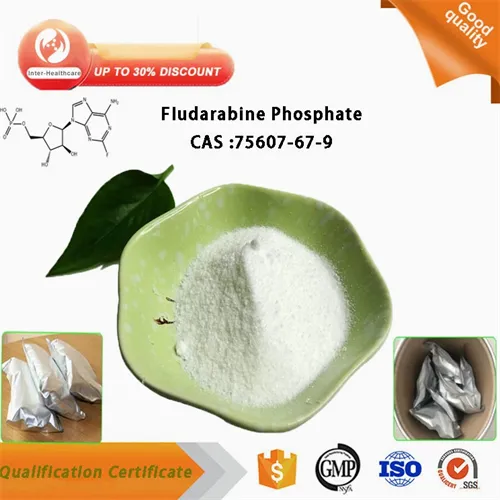 Email: sale@hebeidisha.com
Email: sale@hebeidisha.com
 Tel: +86 13315186550
Tel: +86 13315186550
- Afrikaans
- Albanian
- Amharic
- Arabic
- Armenian
- Azerbaijani
- Basque
- Belarusian
- Bengali
- Bosnian
- Bulgarian
- Catalan
- Cebuano
- China
- China (Taiwan)
- Corsican
- Croatian
- Czech
- Danish
- Dutch
- English
- Esperanto
- Estonian
- Finnish
- French
- Frisian
- Galician
- Georgian
- German
- Greek
- Gujarati
- Haitian Creole
- hausa
- hawaiian
- Hebrew
- Hindi
- Miao
- Hungarian
- Icelandic
- igbo
- Indonesian
- irish
- Italian
- Japanese
- Javanese
- Kannada
- kazakh
- Khmer
- Rwandese
- Korean
- Kurdish
- Kyrgyz
- Lao
- Latin
- Latvian
- Lithuanian
- Luxembourgish
- Macedonian
- Malgashi
- Malay
- Malayalam
- Maltese
- Maori
- Marathi
- Mongolian
- Myanmar
- Nepali
- Norwegian
- Norwegian
- Occitan
- Pashto
- Persian
- Polish
- Portuguese
- Punjabi
- Romanian
- Russian
- Samoan
- Scottish Gaelic
- Serbian
- Sesotho
- Shona
- Sindhi
- Sinhala
- Slovak
- Slovenian
- Somali
- Spanish
- Sundanese
- Swahili
- Swedish
- Tagalog
- Tajik
- Tamil
- Tatar
- Telugu
- Thai
- Turkish
- Turkmen
- Ukrainian
- Urdu
- Uighur
- Uzbek
- Vietnamese
- Welsh
- Bantu
- Yiddish
- Yoruba
- Zulu
Dec . 07, 2024 03:29 Back to list
sustainable future of adipic acid: bio-based solutions and ...
The Sustainable Future of Adipic Acid Bio-Based Solutions and Innovations
Adipic acid is a vital chemical intermediate widely used in the production of nylon, polyurethanes, and various plasticizers. Traditionally sourced from petroleum, its production has raised significant environmental concerns due to greenhouse gas emissions and dependence on fossil fuels. However, as the world increasingly prioritizes sustainability, the focus has shifted towards bio-based solutions for adipic acid production. This article explores the potential of renewable feedstocks, innovative bioprocesses, and the implications for a more sustainable future.
The Environmental Challenge
The conventional synthesis of adipic acid is primarily achieved through the oxidation of cyclohexanol and cyclohexanone, which are derived from petroleum. This process is not only energy-intensive but also contributes to significant CO2 emissions, accounting for nearly 1% of the global greenhouse gas output. Given the urgency of addressing climate change, the chemical industry is under pressure to adopt greener practices and reduce its carbon footprint.
Bio-Based Alternatives
To mitigate these environmental concerns, researchers and companies are exploring bio-based alternatives for adipic acid production. One promising approach involves using renewable biomass, such as plant-based carbohydrates, which can be converted into adipic acid using microbial fermentation or enzymatic processes.
Recent advancements in synthetic biology have enabled the use of engineered microorganisms to efficiently produce adipic acid from renewable resources like glucose or lignocellulosic biomass. These microorganisms can be tailored to enhance yield and reduce by-products, making the process more economically viable. For instance, a study reported that modified strains of *Escherichia coli* could produce adipic acid at competitive rates, demonstrating the potential of fermentation technologies.
Innovations in Process Development
sustainable future of adipic acid: bio-based solutions and ...

The transition to bio-based adipic acid is not just about substituting feedstocks; it also involves significant innovations in process design. Technologies like continuous fermentation, where raw materials are fed into the system steadily rather than in batch processes, can lead to higher productivity and reduced energy consumption. Additionally, integrating bioprocesses with existing chemical manufacturing infrastructures can optimize production efficiency.
Furthermore, advancements in downstream processing can aid in purifying bio-based adipic acid more effectively, ensuring that it meets the quality standards required for industrial applications. Collaborations between academia and industry are crucial in accelerating the commercialization of these advanced biomanufacturing techniques.
Implications for the Industry
The shift towards bio-based adipic acid would not only reduce carbon emissions but also foster a circular economy. Utilizing agricultural residues and waste materials for chemical production minimizes resource depletion and landfill waste. It also opens up new market opportunities for farmers and appeals to environmentally conscious consumers.
Moreover, the adoption of bio-based solutions is becoming increasingly important for companies aiming to meet sustainability targets and comply with regulatory requirements. Consumers now expect brands to be proactive in reducing their environmental impact, making it essential for the chemical industry to innovate and adapt.
Conclusion
The sustainable future of adipic acid lies in the development and implementation of bio-based solutions that replace traditional fossil fuel-derived methods. Through innovative biotechnologies and process improvements, the chemical industry can significantly lower its carbon footprint and promote environmental stewardship. As research progresses and industrial practices evolve, bio-based adipic acid could become a cornerstone of sustainable production, aligning with global efforts towards a greener economy. This transition holds promise not only for the environment but also for the long-term viability of the chemical sector, ensuring that it meets the demands of a rapidly changing world.
Latest news
-
Xanthan Gum Replacement and Powder Insights
NewsJun.06,2025
-
Exploring SLES 70 in Depth
NewsJun.06,2025
-
E1520 Propylene Glycol Uses and Consumption Patterns
NewsJun.06,2025
-
Diethanolamine Multifaceted Uses and Role in Shampoo Formulations
NewsJun.06,2025
-
Caprolactam to Nylon Chemistry and Industry Insights
NewsJun.06,2025
-
Adipic Acid Molecular Weight Significance and Supplier Impact
NewsJun.06,2025